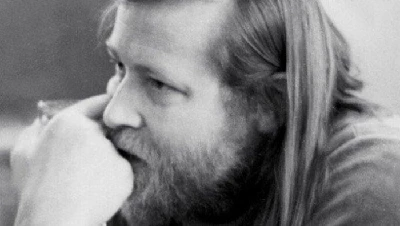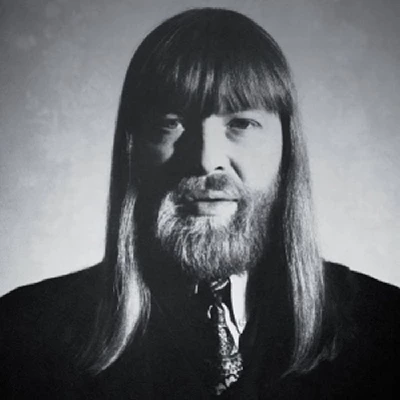published: 24 /
1 /
2013

Dominic Simpon examines the influence of the late German producer and sound engineer Conny Plank, whose work is celebrated in a new four CD box set
Article
Of all the movers and shakers in the so-called “Krautrock” scene in the 70s, few had more of a key role than the late producer and sound engineer Conny Plank. A central node in a disparate scene that took in different parts of West Germany, Plank was as important for 70's German progressive rock as Lee “Scratch” Perry was for Jamaica in the 60s and 70s, passing away in 1986.
His legend is celebrated with 'Who's That Man - A Tribute to Conny Plank', amammoth four-CD box set on Grönland Records. The first two CDs feature classic tracks produced by the man himself, while the third features a raft of remixes. The fourth, meanwhile, is a recording of Plank live in Mexico.
Hugely influential in the music of subsequent decades, Plank collaborated with artists from beyond Germany’s borders, particularly Brian Eno - who features here in collaboration with Dieter Moebius and Hans-Joachim Roedelius (of the band Cluster) with the song ‘Broken Head’ – the Eurythmics, Echo & The Bunnymen, the Damned, and Japanese avant-garde singer Phew.
But it’s his work with native acts such as Neu!, Can, Faust and, most noticeably of all, Kraftwerk, that most will recognise (though his production for other 70s German acts such as Ash Ra Temple and Guru Guru was just as significant).
Neu! feature here more than once, not only with the blissful ‘Leb Wohl’ (from the album ‘Neu!75’), with its lyrics about “stars will shine” and sound of crashing waves, but also, by complete contrast, ‘Negativland’ (from their eponymous first album), with its sample of a jackhammer at the start and wildly flanging guitar. Elsewhere, Michael Rother from Neu! also appears solo with ‘Feuerland’, and remixes of well-known Neu! songs feature elsewhere, including one by ‘Eye’ (which presumably means Yamantaka Eye from the Japanese band Boredoms – but who knows?).
Featured also is La Düsseldorf - formed by Neu! drummer Klaus Dinger after Neu! split (described by Rother as “too much pop”) – with 'Silver Cloud', which stays close to the motoric template of classic Neu!, yet sounds upbeat and shiny 80's-sounding at the same time.
Kraftwerk, Can and Faust, on the other hand, aren’t featured here at all (due almost certainly to licensing/copyright issues); what features instead is a selected romp through some of Plank’s production work, with the aforementioned Cluster (in various carnations) featuring heavily. Also noticeable is electropunk act D.A.F. (Deutsch Amerikansiche Freundschaft – German-American Friendship), whose Teutonic 'Alles Is Gut' sounds like mid-80s bondage-obsessed Depeche Mode in German.
While not including his work with the Scorpions and A Flock of Seagulls, this collection does feature a couple of oddities. The shockingly bad 'Deutsches Weihnachts Potpourri (“German Christmas Potpourri”) has a drunk-sounding Plank himself (under his real name Konrad Plank) bellowing 'Silent Night', out of tune, in German, with what sounds like a wobbly sample of an opera singer in the background.
There is also a number of obscurities who only really made in big in their native Germany, such as Psychotic Tanks (who featured in on 4AD’s first-ever compilation 12”) with the sarcastic 'Let’s Have a Party#; and Düsseldorf’s Streetmark (no, me neither), who can be heard massacring the Beatles' 'Eleanor Rigby', with the main melody recast as a Joe Satriani-esque guitar lick. Elsewhere, Mayo Thompson from The Red Krayola appears with Moebius and Plank to sign a song over a disco beat about a farmer called Gabriel, whose vaguely pervy, sex-obsessed lyrics sound more influenced by 'Animal Farm' the porn film than Orwell’s classic novel.
CD3 meanwhile brings Plank’s sound up-to-date with the laptop era, drawing in a number of contemporary remixers such as Brighton’s Fujiya & Miyagi and Cologne’s Justus Köhncke (the latter remixing the aforementioned “Feuerland”). What really stands out in particular is Günther Lause ( a duo from Munich), who turn Phew’s ‘Doze’ into a hypnotic ten-minute mantra chant, recasting her Japanese-language verses as a kind of monk’s liturgy with sparse, intense percussion guiding her along. It’s spellbinding stuff. Even better is Jens-Uwe Beyer (another Cologne electronic artist who has had releases on that city’s famed Kompakt label), whose 'Conny Plank Rework'at the end of CD3 incorporates elements of ‘Broken Head’ into one big reverbed-up stew, creating a beautiful, floating hypnotic drone.
It’s a beautiful end to the series of remixes, and one that CD4’s capture of a live concert in Mexico can’t quite match. Instead, in-between him talking to the audience in German and pigeon Spanish, his music sounds similar like a cross between mid-80's goth noise (Swans, Sisters of Mercy, etc.), late-80's industrial acts such as Nitzer Ebb and Meat Beat Manifesto, and the kind of trance techno that was in vogue in the early 90s (echoes of Steve Hillage’s System 7), replete with Swiss yodelling. While an interesting enough document of Plank in the live arena, it remains an unessential addition to a fascinating document of a truly pioneering auteur behind the mixing desk.
Picture Gallery:-
